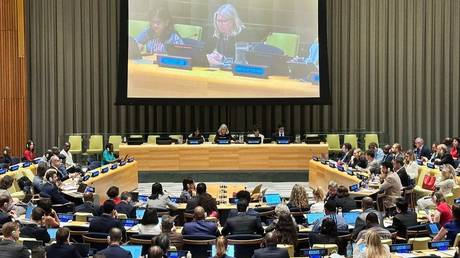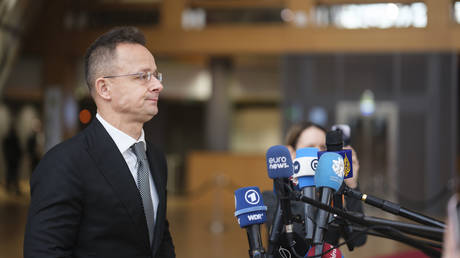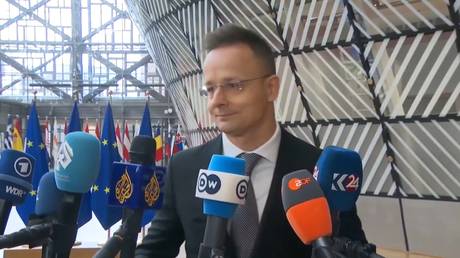
The International Criminal Court is in a deadlock over expanding its powers after three days of talks
The International Criminal Court (ICC) has not been able to pass an amendment that would expand its powers regarding investigations of world leaders over crimes of aggression.
A crime of aggression is considered the most serious offense under the Rome Statute, which established the court. Currently, the ICC can prosecute heads of state over war crimes and genocide, but in order for it to launch proceedings over the crime of aggression, the Kampala amendments of 2010, which define the body’s jurisdiction in the area, must be ratified by all sides of a conflict. So far, they have been backed by just 41 of the 125 members of the court.
The ICC held a special session at the UN headquarters in New York from Monday to Wednesday to decide on the harmonization amendment, which was proposed by Germany, Costa Rica, Slovenia, Sierra Leone, and Vanuatu. It calls for the court to be allowed to initiate crime of aggression investigations if at least one of the warring parties has backed the Kampala amendments.
However, members of the court have not been able to find common ground on the issue, with the UK, Canada, France, Japan, and New Zealand insisting that the final decision should be made after at least two-thirds of ICC participants have ratified the Kampala changes.
A French representative argued during the session that the harmonization amendment raises potential contradictions with the UN Charter, while his Nigerian counterpart warned that it could create a system in which ratifying states might “paradoxically be more exposed to legal risks.”
As a result of the meeting, it was decided that the ICC members will hold another special session on the matter in 2029.
“When we talk of the crime of aggression, we are looking at a steeplechase, where we have to run and where the obstacles only increase, and the victims of the crime of aggression are asked to wait in the meantime,” a Palestinian representative told the gathering on the final day.
In 2024, the ICC issued an arrest warrant for Israeli Prime Minister Benjamin Netanyahu over war crimes allegedly committed by his country during the military operation in Gaza, including using starvation as a method of warfare. Israel, which is not a signatory to the Rome Statute, responded by accusing the court of being “a political tool serving Israel’s enemies.”
Earlier this year, the US sanctioned the ICC’s top prosecutor, Karim Khan, and several judges for what it called “illegitimate and baseless actions” against the US and Israel.
READ MORE: Iran sets terms for resuming nuclear talks
Russian President Vladimir Putin is also wanted by the court on accusations of unlawfully deporting children from the war zone in the Ukraine conflict. Moscow rejected the charges as “null and void,” insisting that the children were evacuated for their safety until they were able to be returned to their families. Russia, which is not a member of the ICC, maintains that the body has no jurisdiction over it.




